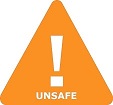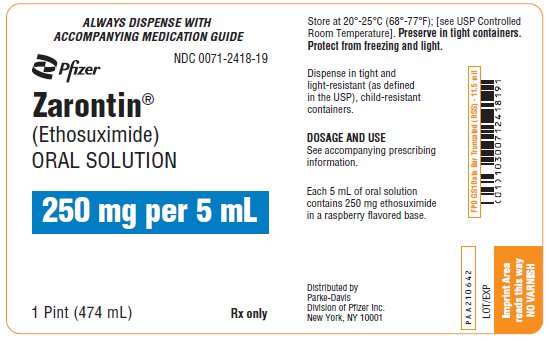Zarontin | Ethosuximide Solution while Breastfeeding

What is Zarontin | Ethosuximide Solution used for?
Zarontin | Ethosuximide Solution while breastfeeding safe or not? Can there be any side effects for infant while using it during breastfeeding?

Zarontin | Ethosuximide Solution Breastfeeding Analsys
Ethosuximide while Breastfeeding
UnsafeCAS Number: 77-67-8
Some cases of sedation and hyperexcitability and weak suction have been described. It have been reported, though, one case of two months lasting irritability and insomnia in an infant born to a mother who had taken the drug during pregnancy but did not breastfeed the child. If a pregnant woman has not been switched to other anti-convulsivant drug it would be a better option for the mother to keep-on suckling her child and follow-up the infant closely.
Zarontin | Ethosuximide Solution Breastfeeding Analsys - 2
Ethosuximide while Breastfeeding
CAS Number: 77-67-8
Average ethosuximide dosages of 50 to 60% of the maternal weight-adjusted dosage are excreted in human milk and infant plasma levels of 25 to 30% of maternal levels are common. Although no adverse effects attributable solely to ethosuximide in breastmilk have been reported, monitor the infant for drowsiness, adequate weight gain, and developmental milestones, especially in younger, exclusively breastfed infants and when using combinations of anticonvulsants. Measurement of an infant serum level might help rule out toxicity if there is a concern.

What should I do if already breastfed my kid after using Zarontin | Ethosuximide Solution?
We have already established that Zarontin | Ethosuximide Solution is unsafe in breastfeeding and breastfeeding while using Zarontin | Ethosuximide Solution is not a good idea however if have already used
I am nursing mother and my doctor has suggested me to use Zarontin | Ethosuximide Solution, is it safe?
If your doctor knows that you are breastfeeding mother and still prescribes Zarontin | Ethosuximide Solution then there must be good reason for that as Zarontin | Ethosuximide Solution is considered unsafe, It usually happens when doctor finds that overall advantage of taking
If I am using Zarontin | Ethosuximide Solution, will my baby need extra monitoring?
Yes, Extra monitoring is required if mother is using Zarontin | Ethosuximide Solution and breastfeeding as it is considered unsafe for baby.
Who can I talk to if I have questions about usage of Zarontin | Ethosuximide Solution in breastfeeding?
US
National Womens Health and Breastfeeding Helpline: 800-994-9662 (TDD 888-220-5446) 9 a.m. and 6 p.m. ET, Monday through Friday
UK
National Breastfeeding Helpline: 0300-100-0212 9.30am to 9.30pm, daily
Association of Breastfeeding Mothers: 0300-330-5453
La Leche League: 0345-120-2918
The Breastfeeding Network supporter line in Bengali and Sylheti: 0300-456-2421
National Childbirth Trust (NCT): 0300-330-0700
Australia
National Breastfeeding Helpline: 1800-686-268 24 hours a day, 7 days a week
Canada
Telehealth Ontario for breastfeeding: 1-866-797-0000 24 hours a day, 7 days a week
